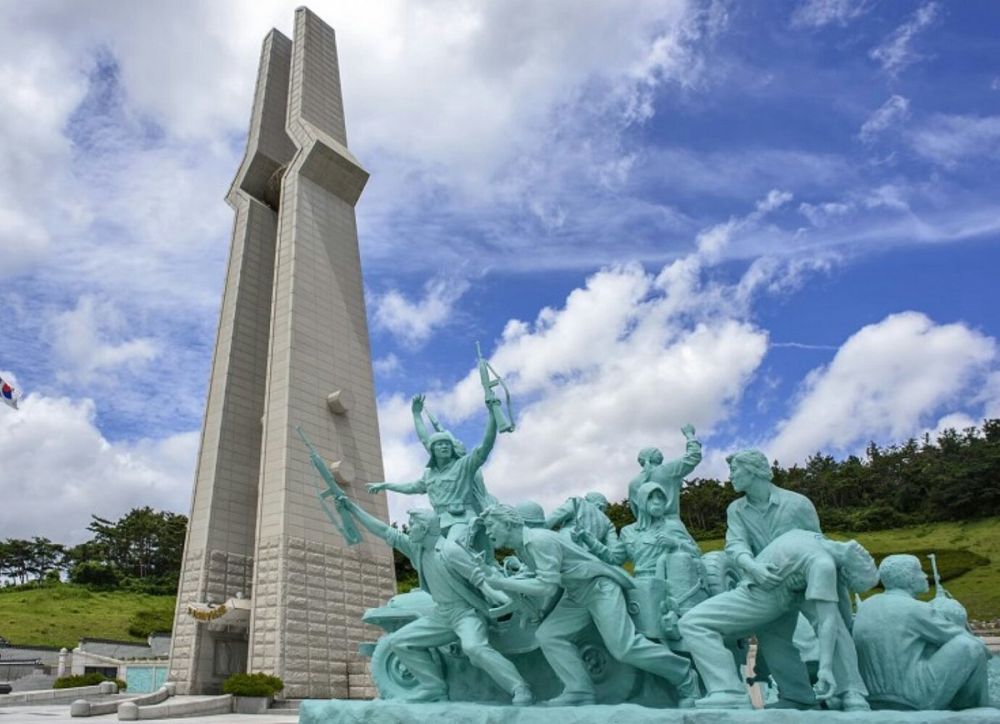May 18th National Cemetery, Gwangju, South Korea
The May 18th National Cemetery in Gwangju, South Korea, is an important historical site that commemorates the victims of the Gwangju Democratization Movement, also known as the Gwangju Uprising, which occurred from May 18 to 27, 1980. The movement was a pivotal moment in South Korea’s modern history and played a significant role in the country's transition to democracy.
History of May 18th National Cemetery
The cemetery was established to honor the memory of those who lost their lives during the uprising against the military dictatorship. The Gwangju Uprising was a powerful demonstration of the people's resistance against authoritarian rule, and it ultimately led to the enhancement of democracy in South Korea. In recognition of the sacrifices made by the citizens of Gwangju, the area was designated as a national cemetery on May 18, 1997, the 17th anniversary of the movement.
Development of the Site
Initially, the cemetery was a site for local citizens to pay their respects. It wasn’t until the government officially recognized the historical importance of the event that it invested in the cemetery to formalize it as a national memorial. The development included landscaping, the construction of memorial facilities, and the organization of guided tours.
Tourism at May 18th National Cemetery
In the years following its establishment, the May 18th National Cemetery became a destination not only for those wishing to pay their respects but also for students, historians, and tourists interested in South Korea's struggle for democracy.
Visitors to the cemetery can explore various commemorative spaces such as the Memorial Tower, the Daedong Plaza, the Mugunghwa Hill, Exhibition Hall, and the Memorial Monuments area. The Exhibition Hall provides historical context through pictures, documents, and personal stories of the events leading up to and during the Gwangju Uprising.
Latest Trends in Tourism
In recent years, there has been a trend towards “dark tourism”, where travelers seek out locations with a tragic or historically significant past. Sites like the May 18th National Cemetery fall into this category, as they offer profound insights into moments that have shaped a nation's identity.
Another trend is the increasing interest in cultural and educational tourism, where destinations provide learning experiences alongside traditional sightseeing. The cemetery's Exhibition Hall is an example of this, offering educational material on the democratic movement in South Korea.
Events and Accessibility
Each year on May 18th, a commemoration ceremony is held at the cemetery, which brings in visitors from across the nation and the world. This event increases the visibility of the site while educating the public about the historical significance of the Gwangju Democratization Movement.
Accessibility to the site has improved with the development of infrastructure, making it easier for international tourists to visit the cemetery. English-language guided tours and resources have also become more available, accommodating the increase in global interest.
The May 18th National Cemetery remains an essential site for understanding South Korea's complex history and continues to be a significant destination for those interested in the country's journey to democracy.

